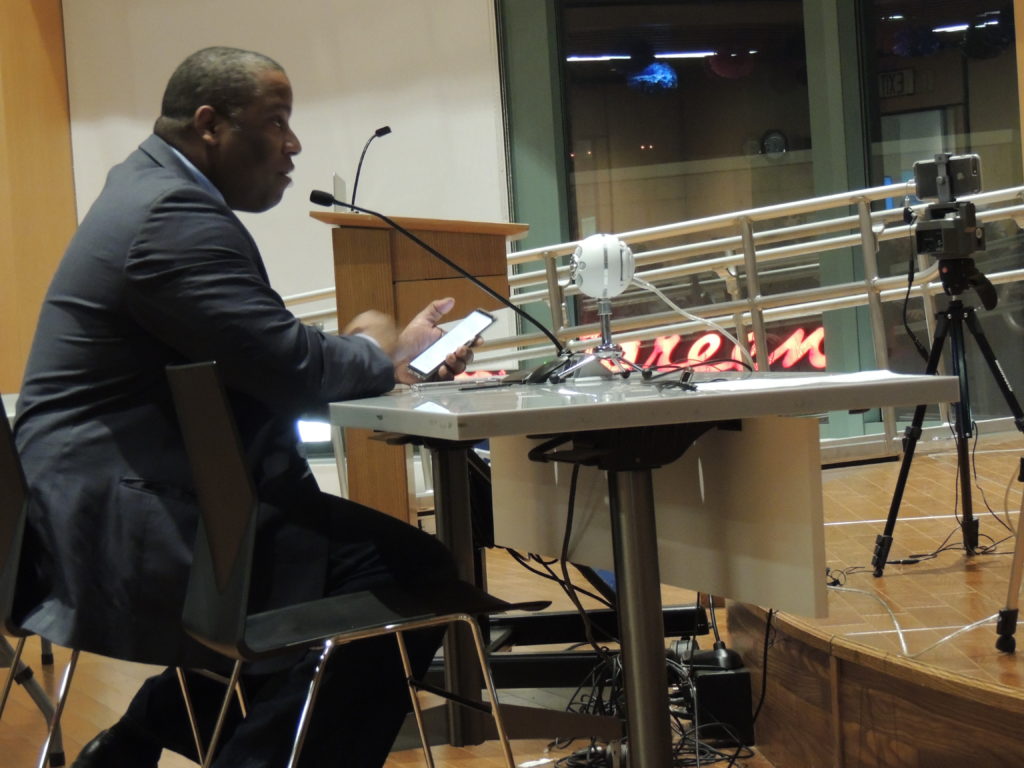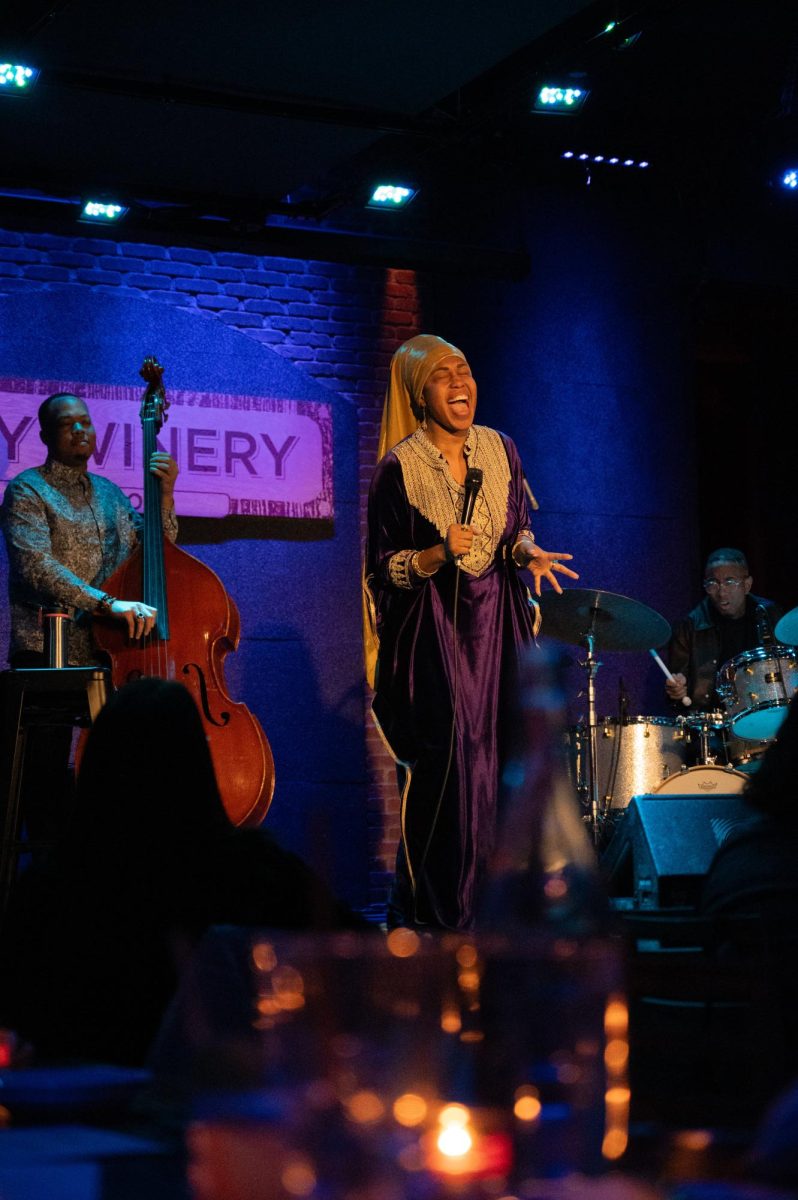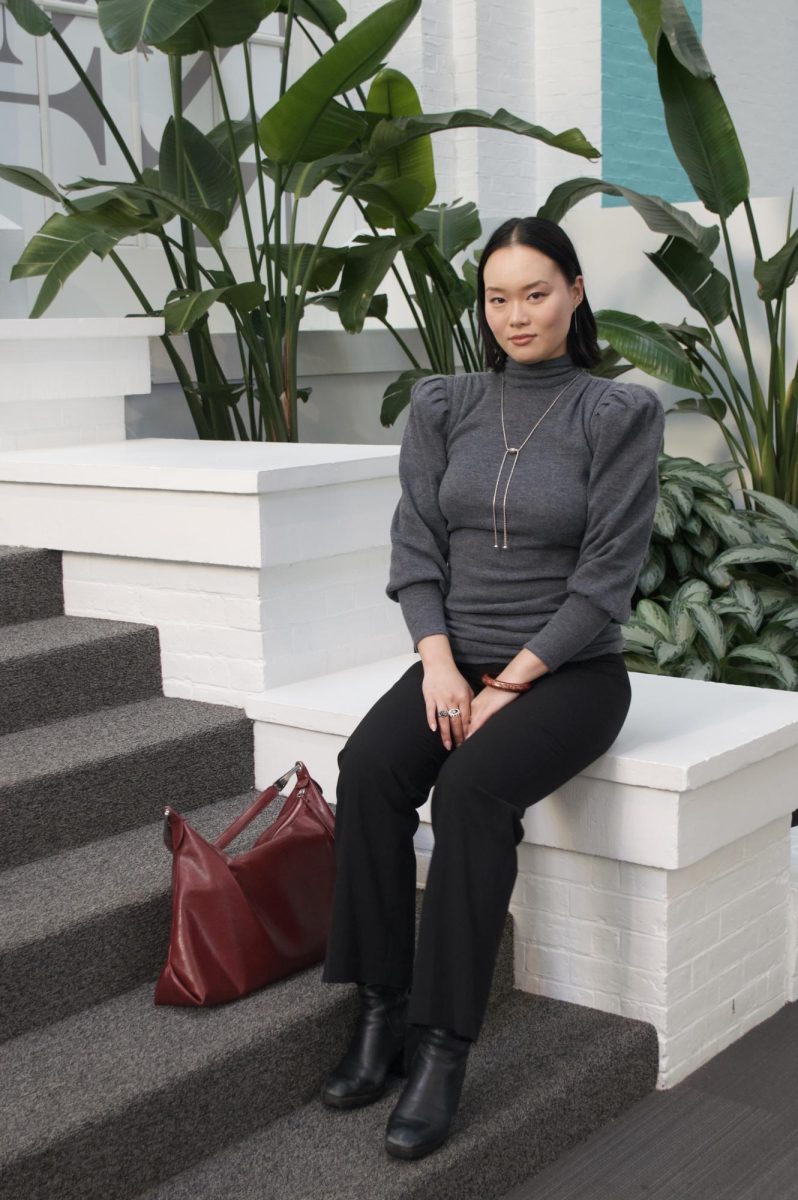Cannabis commission hears regulation concerns
February 14, 2018
Before finalizing its regulations for adult marijuana use in Massachusetts, the Cannabis Control Commission is making its way around the state to hear from the public. Tuesday night marked the commission’s final stop and the first public hearing since the release of a third condemnation from Gov. Charlie Baker’s office that warned of the public health risks the current draft of regulations poses.
More than 100 citizens signed up to address the commission at the Bolling Municipal Building in Roxbury. Chairman Steven Hoffman said he welcomed any and all feedback in order to aid the creation of detailed provisions for the final regulations. At the end of the night, there seemed to be a consensus in the public’s feedback: The commission needs to focus on access and inclusion.
Tito Jackson, former district 7 city councilor and 2017 mayoral candidate, spoke first. He voiced his concern that the draft of regulations does not contain equity provisions that will help protect communities that were at a disadvantage before the end of cannabis prohibition.
After testifying, Jackson said he places a lot of hope in these hearings to expand the benefits of legalization to the broadest base possible.
“Of the 18 licenses in consideration, none are owned by people of color and none of these will serve those of lesser means,” Jackson said.
Jackson’s words received countless nods of approval from the audience and many speakers cited his statement in their testimony afterward. Unlike Jackson, Baker wants the commission to delay its release of regulations and only focus on its statutory obligation to set up a retail cannabis market.
Ethan Vogt, a resident of Roxbury and the organizer of Home Grown Boston, a small business that aims to advance cannabis culture in the area, used his testimony to ask for the exact opposite. At the top of his list of concerns was the licensing of non-brick-and-mortar delivery services. These services allow those who currently distribute marijuana to bring their knowledge of the business to the legal market. But, the commission’s current draft of regulations makes it hard for those with criminal records to enter the market.
“Instead of dismantling and creating an entirely new system, let’s remove bad actors and establish a more transparent structure,” Vogt said.
Jeff Campbell, a third-year law student at Harvard University, furthered Vogt’s plea by asking that the commission understand the circumstances of limiting those with criminal records from participation.
“Many of the crimes the commission will use to lock potential entrepreneurs out of the market are directly tied to the flawed war on drugs that brought us here in the first place,” he said.
The governor’s most recent letter to the commission expressed concern that widespread availability of marijuana will lead to more driving under the influence, wider accessibility to persons under 21 and the emergence of a new black market of marijuana transactions.
In attendance was Ginger Jackson-Gleich, another third-year law student at Harvard who said Baker’s requests limit accessibility for those without capital and representation. Jackson-Gleich also works in public defense in Roxbury.
“Sitting in court and sitting at these hearings, the differences in representation are dramatic,” she said. “The commission needs to focus on not only establishing a market but in establishing a cheap market force and ensuring availability.”
Massachusetts as a whole is facing an affordable property crisis, so the establishment of an actual location for retail is becoming increasingly difficult. Many retailers who are being considered for a license are at risk of having to sacrifice this opportunity because of challenges finding a location for business.
Many of the testimonies came from those who may lose their chance at a license and from those who believe the requirement of a physical retail location will put some communities at a disadvantage.
Daniel Delaney, a policy adviser from Cambridge, wanted the commission to explicitly define disproportionately affected communities in the regulations.
“Establishing a business isn’t easy to do everywhere. This is going to leave many people without access, and I hope my testimony will push the commission toward explicit language on their lack of inclusion,” he said.
Immediately after Delaney’s testimony came Steven Schlang, who pushed forward on the initiative to include non-brick-and-mortar licenses for personal purposes.
“Big money cannot take hold of this industry,” Schlang said. “We need to promote cooperative production of cannabis and small licensing for local peer-to-peer exchanges.”
Medical dispensary operators received some pushback from the public as well. Dispensaries are concerned, along with legislators like the governor, that an open market will invite a crackdown from the federal government. They also question the commission’s capacity in oversight of such an open market. But there was no voice representing dispensaries at the public hearing, only opposition.
Ben Nardone, a researcher from East Hampton, stressed that accessibility will help promote research opportunities for further medical advantage.
“The commission and dispensaries alike need to understand that accessibility will not be harmful,” he said. “It will encourage the development of newer medicine and models of care that will be incorporated into the medical field. This is an opportunity that federal prohibitions have kept us from pursuing, and it is important that the commission know this.”
On one side, there is a push from both the government and dispensaries to stay safe and limit the development of Massachusetts’s fledgling cannabis market. On the other is a majority of the public, who have greatly voiced their concerns of misrepresentation and inaccessibility at the commission’s series of hearings. The most recent hearing Tuesday was a reiteration of the public’s position. The commission still has a lot of work to do before the final regulations are released, and with this being the final public hearing, there are many who hope their voice will be heard.








